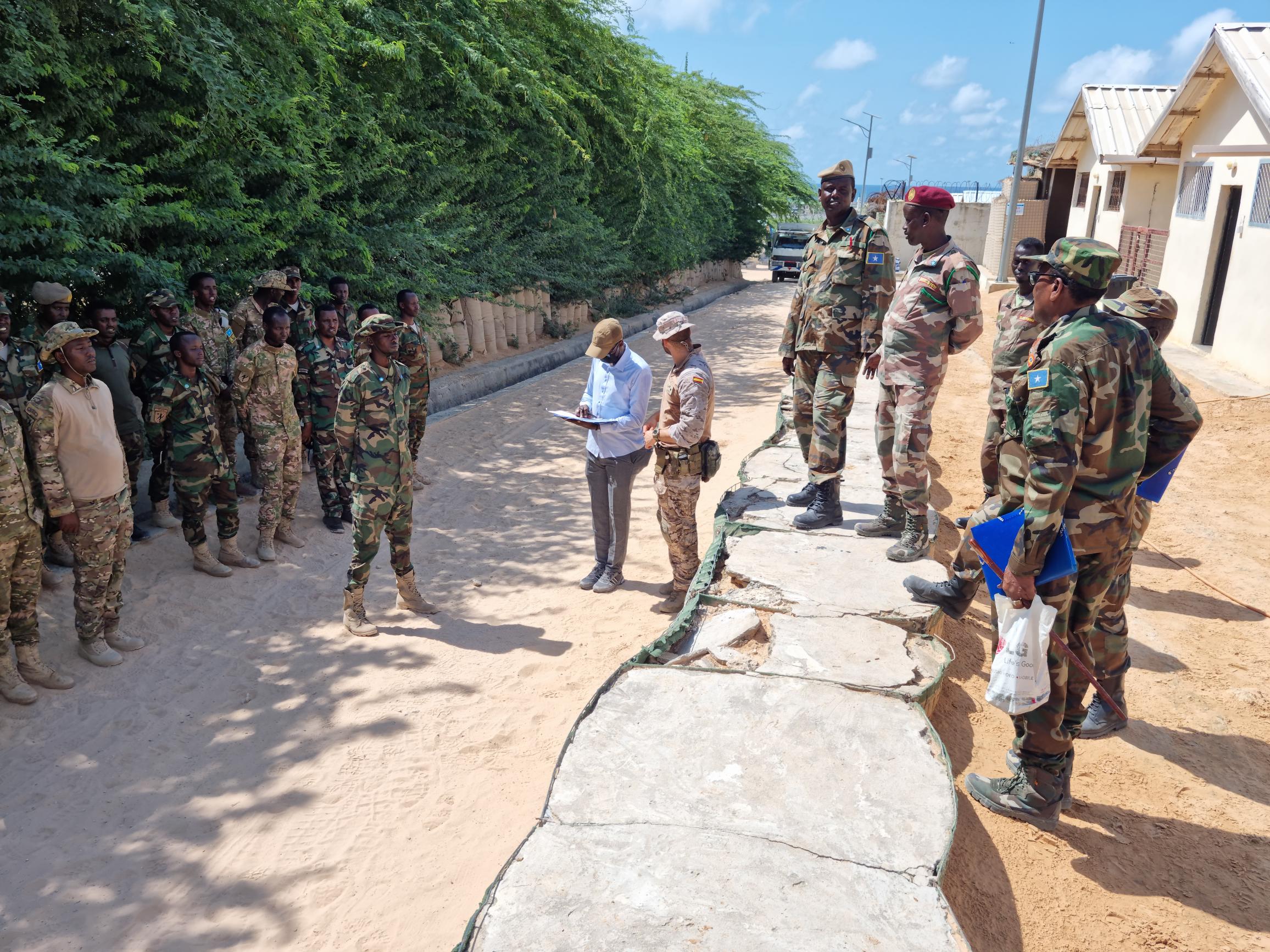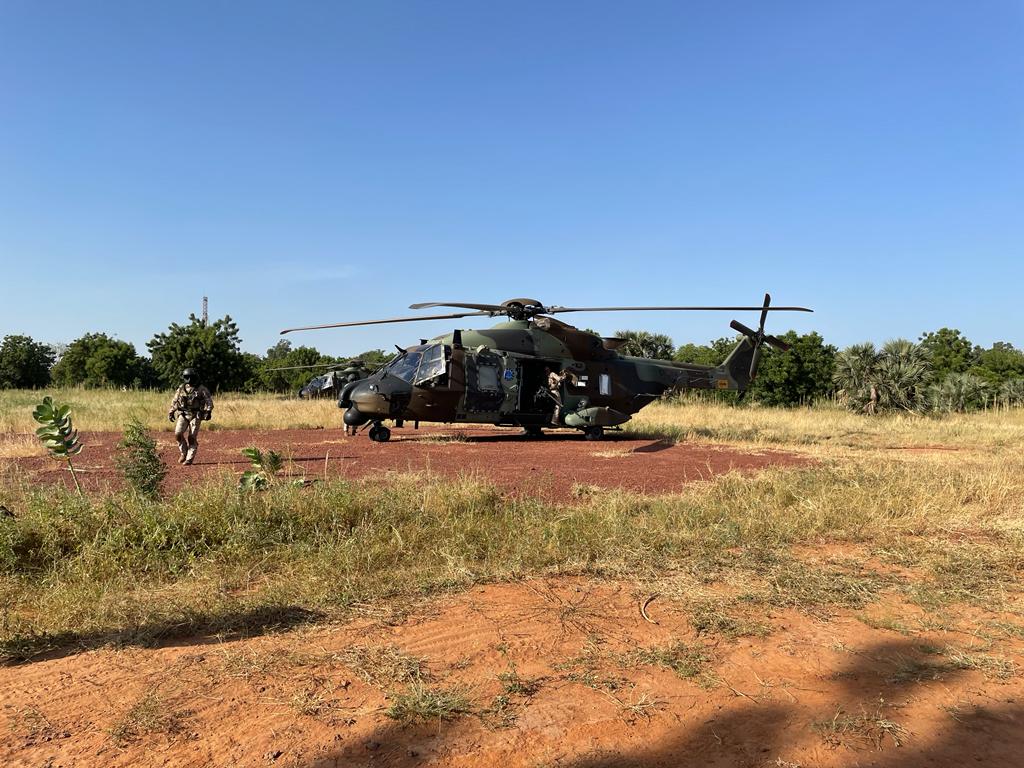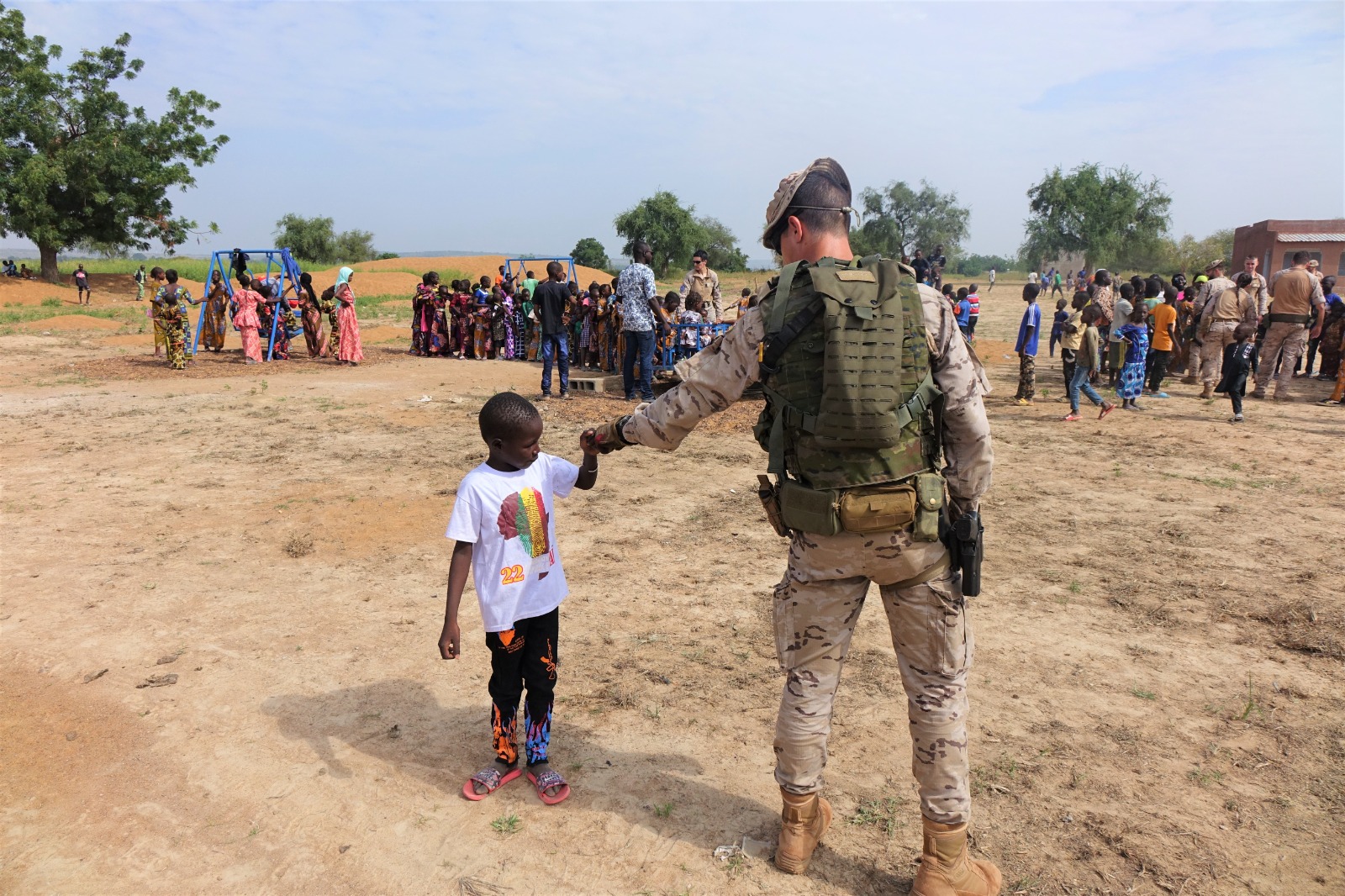
The Spanish contingent, the largest in the EU Training Mission in Mali
- The Spanish unit has a permanent presence in three locations and a temporary presence in other locations in Mali and the other four G5 Sahel countries
The Malian towns of Bamako, Koulikoro and Sevaré have a permanent Spanish presence within the contingent of the European Union Training Mission in Mali (EUTM Mali). In addition, Ouagadougou (Burkina Faso), Nouakchott (Mauritania) and Segou, Gao, Kati and Timbuktu (Mali) also have or have had a Spanish presence. Almost 600 Spanish military personnel are deployed in Mali in security, training, protection, air transport and advisory tasks for the benefit of the Malian Armed Forces and the G5 Sahel Joint Force, an organisation of five Sahel countries (Burkina Faso, Mali, Mauritania, Niger and Chad).
Koulikoro is home to most of the Spanish contingent and the EUTM Mali Protection Force (PF), which, in addition to Spanish military personnel, is made up of members from Luxembourg and the Czech Republic. Their missions are not limited to providing security for training activities, but also for civil-military activities for the benefit of the local population, installations, deployments and helicopter landing and take-off zones.
To ensure the protection of the instructors, both in Koulikoro and Bamako and in the deployments in Sevaré and Segou, it is essential to recognise the work area beforehand and to isolate it properly so that they can carry out their tasks.
The Spanish contingent deploys a permanent training team in Sevaré, a town 700 km away from the capital. The Spanish instructors are in charge of training the Malian units that will be fighting terrorism in the northern region of the country. Accompanied by a unit of the Protection Force, they are responsible for the main pillar of the EU mission: training. The current team has trained more than 300 Malian soldiers, increasing thus the number of Malian troops trained since the start of the mission in 2013.
Presence in Bamako
Bamako is the headquarters of the Spanish military personnel belonging to the Mission Headquarters and also of the team of advisors to the General Staff of the Malian Armed Forces. The Spanish advisors develop their work in the Joint Staff, the Army Staff and other Malian organisations. There is also a constant Spanish presence in the Command Post of the Joint Force of the five Sahel countries, which recently received its pre-deployment course in the capital of Mauritania
The airport is also home to the latest unit deployed from Spain: the NH90 helicopter unit (ITAT), which facilitates air transport between cities that are linked by a road network whose condition is far below the standards known in Spain. Its support favours the movement of training units and the transport of material in a theatre of operations as large as Mali. The unit belonging to the Army Air Mobile Forces (FAMET) has been meticulously prepared before its deployment in conditions similar to those in Mali and to maintain this training, our pilots continue to carry out these training flights on a regular basis and on Malian terrain.
It should be noted that the Spanish Civil-Military Cooperation (CIMIC) personnel focus their work to favour the development of the operation in a stable environment, carrying out liaison and support actions in the civilian environment. This fact allows for interaction between the Spanish contingent and civil society, helping to explain the mission and gain the support of the population while cooperating with its development and the promotion of shared values.
Eight projects have been completed this year and two more are under implementation. These projects are linked to development in different areas, such as health, education, gender equality, agricultural development and basic water and sanitation infrastructure.
The CIMIC team is also responsible for delivering donations from Spain.
The permanent contact with the Malian civil society allows a privileged vision of the environment that makes the CIMIC team a tool of cultural advice.
Fotos




